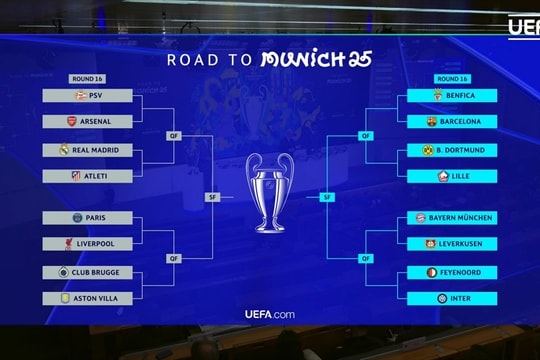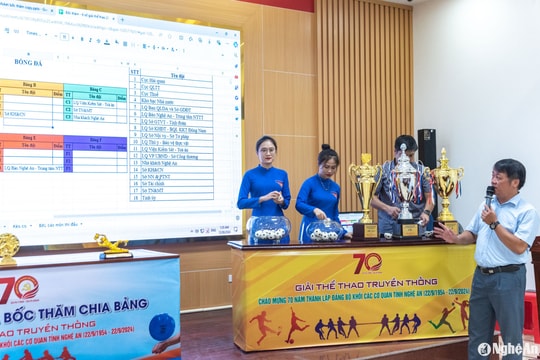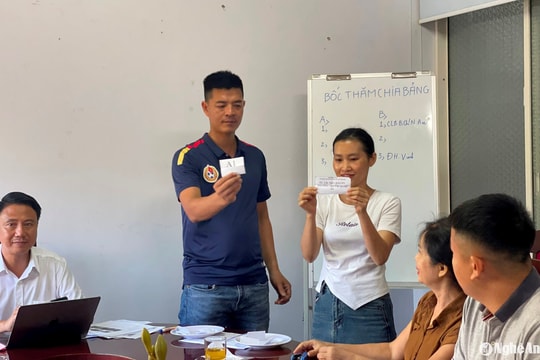Lottery is not creative!
(Baonghean.vn) - Drawing lots is a form of random selection, without bias or favoritism: Drawing lots to divide sports tables, drawing lots to divide portions, drawing prizes in games, lotteries,...
There are some funny stories about drawing lots: During the subsidy period, once every four people were allowed to buy a piece of silk fabric to make pants. At that time, it was very precious and rare, everyone wanted to buy it. People sent someone outside the group to make a lot to be objective. In one group, a cunning man colluded with the person making the lot, making a "yes" lot for the old man to keep in hand, while the other four lots were all "no". The other three people were all nervous and anxious, after drawing, they were busy opening their lots. The "sly old man" also pretended to follow, asking each person. Finally, the "most indifferent" person took the piece of fabric! In a production team, there was a greedy person, often enthusiastically making lots and spreading lots. That day, she also pretended to be very objective, enthusiastically making lots and spreading lots. When opening the lot, she was delighted to get the biggest pile of straw. Everyone was "happy", under the pile of straw were two shafts that some "mischievous" guys had secretly set up!
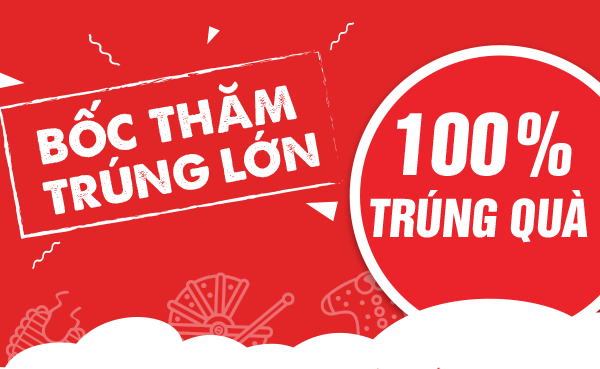 |
Lucky draw advertisement to stimulate customers to buy products. Illustration photo Internet |
Recently, in Hanoi, there was a story about having to draw lots to get children into public kindergartens - a rare and unfortunate story, but still sympathetic to society when public schools are "overloaded"; the remaining children still have private schools to study. There was also a drawing of lots to verify the truthfulness of officials' asset declarations, making the people "stirred up"!
I still remember, on the National Assembly forum, a delegate used the "elimination method" to "narrow down" and find corrupt people very convincingly: First of all, they must be party members, then party members but have power, status, and are in charge of "sensitive" fields,... Of course, not everyone with power, status, and in "sensitive" fields is corrupt. To know who is corrupt, it is necessary to ask for inspection, examination, supervision,...
Non-corrupt people are decent and kind. They work according to their assigned functions and tasks, work with their heart, talent, and sense of responsibility to serve the country and the people. They are not only willing but also have the need to voluntarily disclose and be transparent about their income and assets. They have a very high self-respect and do not want the people to misunderstand that officials in power are corrupt. If only everyone would uphold the honesty of a true official and party member, declare their assets accurately, and be willing to voluntarily be inspected, considering it a confirmation of their honesty, without having to be passive and fearful of luck through drawing lots, how great that would be!
On the contrary, some cadres and party members take advantage of their positions and fields of work for greed and profiteering. There are people who have no problems when declaring, but when they are involved in corruption, they are discovered to have a lot of huge assets. It is worth noting that they have hundreds of ways to "disguise" these assets: Or they argue that they are from raising pigs, selling brooms, driving motorbike taxis, etc. They legalize houses and land in the names of their wives, husbands, and children, with values up to tens and hundreds of billions of dong, not to mention land, houses, and other types of assets. They have fathers and mothers in their 80s who still own "mansions". They have children who study abroad and have stocks that even businesses can hardly keep up with, etc. These realities are not unknown to everyone. When leaders give comments, they accuse them of "causing internal disunity", when subordinates raise them, they suppress them, when people "live far away", their complaints are not heard, but they also "fan the flames",...
If cadres, party members, and civil servants all live decently and kindly, there is no need to draw lots to verify assets. If it cannot be done at once, it is possible to verify by title, with leaders doing it first, subordinates doing it later, this sector doing it first, that sector doing it later, surely everyone will have to comply, and the people will be very pleased?
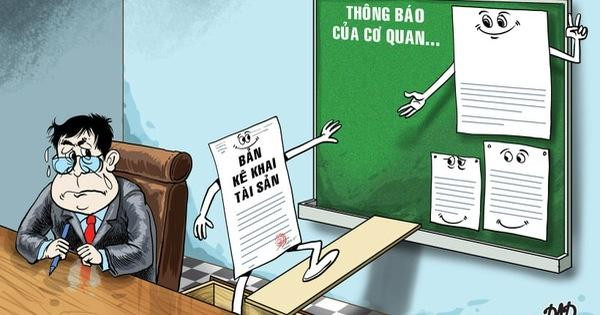 |
Internet illustration. |
It is known that in developed countries, the management of income and assets of public officials, including senior leaders, is very clear, public, and transparent. Many senior leaders still own modest assets. British Prime Minister Cameron still rents a house, Japanese Prime Minister Shinzo Abe still queues like ordinary people in public, retired US President Obama still writes books and gives speeches to earn more income,... But they are sociable, they are respected by the people.
People's knowledge is increasingly improved. As the life of each citizen has improved, the life of officials has also improved. They no longer have the idea of equalization, income and assets must be approximately the same, everyone is the same. Many dynamic, creative, and talented officials not only earn from salary but can also have other legitimate sources of income.
The fight against corruption and negative practices in recent years has had very encouraging results, and the people are very supportive. The declaration and verification of income and assets of officials and party members is very necessary. It should be determined that this is a regular, normal task and needs to be carried out voluntarily, democratically, publicly and seriously.


